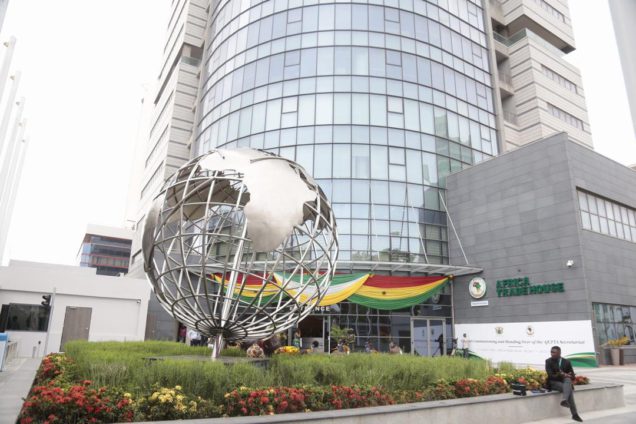Gov’t eyes continental markets in ’24-hour economy’ push
Government’s ambitious 24-Hour Economy policy stands to gain substantial momentum from the African Continental Free Trade Area (AfCFTA) as the landmark agreement begins reshaping intra-African trade and economic cooperation.
According to Francis-Xavier Kojo Sosu, Member of Parliament (MP) for Madina Constituency, the policy seeks to promote industrial activity around the clock and aligns seamlessly with expanded market opportunities offered by the AfCFTA framework.
The AfCFTA, headquartered in Accra, is set to unify 54 African countries representing over 1.2 billion people and a combined Gros Domestic Product (GDP) of US$3.4trillion. It offers transformative prospects for trade liberalisation, enhanced industrial output and economic growth across the continent. By eliminating tariffs and reducing non-tariff barriers, the agreement is expected to increase trade volumes and unlock opportunities for businesses in member-states.
Speaking in parliament, Mr. Sosu, highlighted the synergy between the flagship 24-Hour Economy policy and the AfCFTA. He pointed out how the policy could thrive with the expanded market and infrastructure development envisioned under the trade agreement.
“The AfCFTA presents transformative opportunities for local businesses, including those in the Madina Constituency. By facilitating expanded markets and enhancing industrial output, Ghana’s 24-hour economy policy could flourish, creating jobs and driving economic growth,” he noted.
The 24-hour economy initiative, which aims to ensure round-the-clock industrial and commercial activity, requires robust market access to succeed. With AfCFTA providing a platform for seamless trade across the continent, the nation stands to position itself as a critical hub for intra-African trade and commerce.
Mr. Sosu stressed that the country’s leadership, in implementing AfCFTA policies, will be pivotal in cementing its role as a continental trailblazer.
Despite its immense potential, AfCFTA’s implementation has not been without challenges. A recent World Bank study underscored the importance of political will, policy harmonisation and infrastructure development in achieving the agreement’s full benefits.
The report projects that by 2035 AfCFTA could lift 30 million people out of extreme poverty and generate US$450billion in real income gains if fully implemented. However, these outcomes depend on African governments aligning their domestic trade laws with AfCFTA protocols and committing to regional integration.
Mr. Sosu also called for strategic investment in trade-related infrastructure, including transportation networks and digital connectivity, to ensure Ghana capitalises on opportunities presented by the agreement.
“For the AfCFTA agreement not to remain only an ideology, African governments must show political will and commitment to amend their local trade and investment laws. Infrastructure development is equally critical to streamline intra-African trade,” he stated.
In addition to infrastructure, capacity building has emerged as a critical area of focus. Mr. Sosu proposed educational initiatives to empower local small and medium-sized enterprises (SMEs) to leverage the AfCFTA’s market potential.
He argued that by equipping businesses with the tools and knowledge to compete on a larger scale, the nation can create a thriving ecosystem of local industries contributing to the broader continental economy.
The current administration has touted the 24-hour economy policy as a significant component in the nation’s economic transformation. By increasing productivity and encouraging innovation, the policy is expected to serve as a model for other African nations seeking to maximise benefits of the trade agreement.
Industry stakeholders believe the integration of regional markets will foster greater economic resilience and reduce the continent’s dependence on external trade partners.
Mr. Sosu further urged parliament, the Ministry of Trade and Industry and other key stakeholders to prioritise legislative and policy frameworks that support the AfCFTA’s implementation.
“Ghana must show leadership in this respect by prioritising legislative and policy frameworks that will cement Ghana’s role as a continental trailblazer. Together, let us make the AfCFTA a reality for the benefit of all Africans,” he asserted.



